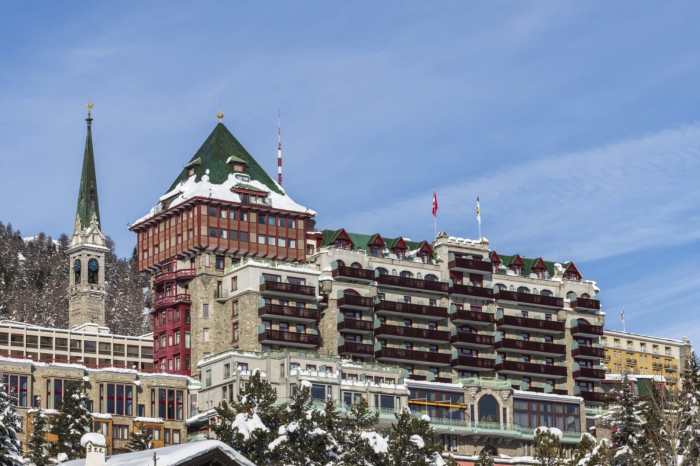
Embark on a journey through time with Historic Hotels in Europe, where the charm of the past meets modern luxury, offering a unique experience for travelers seeking a touch of history in their accommodation choices.
Discover the allure of staying in centuries-old establishments that have witnessed the tales of bygone eras and learn about the efforts to maintain their historical integrity amidst the evolving hospitality landscape.
Historic Hotels
Historic hotels are accommodations that have a rich history and are typically located in buildings that have stood the test of time. These hotels often boast unique architectural features, cultural significance, and a connection to the past.
Preserving historic hotels is important as they serve as a link to our heritage and provide a glimpse into the past. By maintaining these establishments, we are able to appreciate and learn from the history and craftsmanship that went into their construction. Additionally, historic hotels contribute to the overall charm and character of a destination, attracting tourists and preserving local traditions.
Examples of Famous Historic Hotels in Europe
- Hotel Ritz, Paris: Opened in 1898, the Hotel Ritz in Paris has hosted numerous celebrities and dignitaries over the years. It is known for its luxurious accommodations and grand Belle Époque architecture.
- The Shelbourne, Dublin: Dating back to 1824, The Shelbourne Hotel in Dublin is a historic landmark with a rich history. It has welcomed famous guests such as Princess Grace of Monaco and John F. Kennedy.
- Hotel Danieli, Venice: Situated in a palace dating back to the 14th century, the Hotel Danieli in Venice exudes elegance and charm. It has been a favorite among artists and writers for centuries.
Characteristics of Historic Hotels

Historic hotels are known for their unique charm and rich history, offering guests a glimpse into the past while providing modern amenities for a comfortable stay. These establishments often boast distinctive features that set them apart from modern hotels.
Unique Features of Historic Hotels
- Historic charm and character that reflects the time period in which the hotel was built.
- Antique furnishings, decor, and architecture that showcase the hotel’s heritage.
- Stories and anecdotes from the past that add to the overall experience for guests.
- Preservation of historical elements while incorporating modern conveniences for guests.
Comparison with Modern Establishments
- Historic hotels offer a sense of nostalgia and tradition that modern establishments may lack.
- Modern hotels focus on sleek and contemporary design, while historic hotels embrace the beauty of the past.
- Historic hotels often have a smaller number of rooms, providing a more intimate and personalized experience for guests.
- Modern hotels may prioritize technology and efficiency, while historic hotels emphasize storytelling and connection to the past.
Architectural Styles in Historic Hotels
- Victorian: Known for ornate detailing, intricate patterns, and grandeur.
- Art Deco: Characterized by geometric shapes, bold colors, and modern materials.
- Baroque: Features elaborate ornamentation, dramatic lighting, and rich textures.
- Renaissance: Incorporates classical elements, symmetry, and grand proportions.
Preservation Efforts
Preserving the historical integrity of historic hotels presents unique challenges that require careful planning and execution. As these properties hold significant cultural and architectural value, maintaining their authenticity is crucial to their continued relevance and appeal.
Challenges of Maintaining Historical Integrity
One of the main challenges in preserving historical integrity in historic hotels is striking a balance between modern amenities and preserving the original design and features. Renovations and updates must be done sensitively to avoid compromising the hotel’s historical character.
Strategies for Preserving Heritage and Authenticity
- Conducting thorough research on the hotel’s history and architectural significance to inform preservation efforts.
- Engaging preservation experts and architects with experience in historic restoration to ensure authenticity.
- Implementing a maintenance plan that includes regular inspections and repairs to prevent deterioration.
- Showcasing historical elements through guided tours, exhibitions, or informational displays to educate guests about the hotel’s heritage.
- Using original materials and techniques in restoration projects to maintain the hotel’s historical authenticity.
Role of Regulations and Incentives
Regulations play a vital role in preserving historic hotels by setting standards for preservation and guiding renovation processes. Incentives such as tax credits or grants can provide financial support to owners who commit to maintaining the historical integrity of their properties. These measures help incentivize the preservation of historic hotels and ensure their long-term sustainability.
Guest Experiences

Guest experiences at historic hotels are often filled with charm, elegance, and a touch of nostalgia. These establishments offer a unique setting that transports visitors back in time, providing a stay that is both memorable and enriching.
Memorable Stays
Many guests have shared unforgettable stories from their stays at historic hotels. One guest recounted how they were greeted by a roaring fireplace and a butler offering a glass of sherry upon arrival, setting the tone for a luxurious and cozy stay. Another visitor mentioned how they felt like royalty while dining in a grand ballroom filled with centuries-old artwork and ornate chandeliers.
Amenities Offered
- Spa facilities with treatments inspired by traditional practices
- Fine dining restaurants serving gourmet cuisine
- Afternoon tea service in opulent lounges
- Guided historical tours of the property
- Luxurious accommodations with antique furnishings
Ambiance and Atmosphere
Historic hotels exude a sense of history and grandeur that is unmatched by modern establishments. The architecture, decor, and furnishings create an ambiance that is elegant, sophisticated, and steeped in tradition. Guests often describe feeling like they have stepped back in time, immersing themselves in a bygone era where attention to detail and personalized service were paramount.
As we conclude our exploration of Historic Hotels in Europe, we invite you to immerse yourself in the rich tapestry of stories and experiences these iconic establishments have to offer. Whether you seek opulent grandeur or quaint charm, these historic hotels promise a stay like no other, blending the best of the past and present for an unforgettable guest experience.
Quick FAQs
What makes historic hotels unique?
Historic hotels offer a blend of rich heritage and modern luxury, providing guests with a unique experience steeped in history and elegance.
How do historic hotels preserve their authenticity?
Historic hotels employ various strategies such as maintaining original architectural features, implementing heritage conservation practices, and adhering to strict preservation guidelines to safeguard their authenticity.
What amenities can guests expect at historic hotels?
Guests at historic hotels can enjoy a range of amenities including fine dining options, spa services, guided historical tours, and personalized concierge services to enhance their stay.





